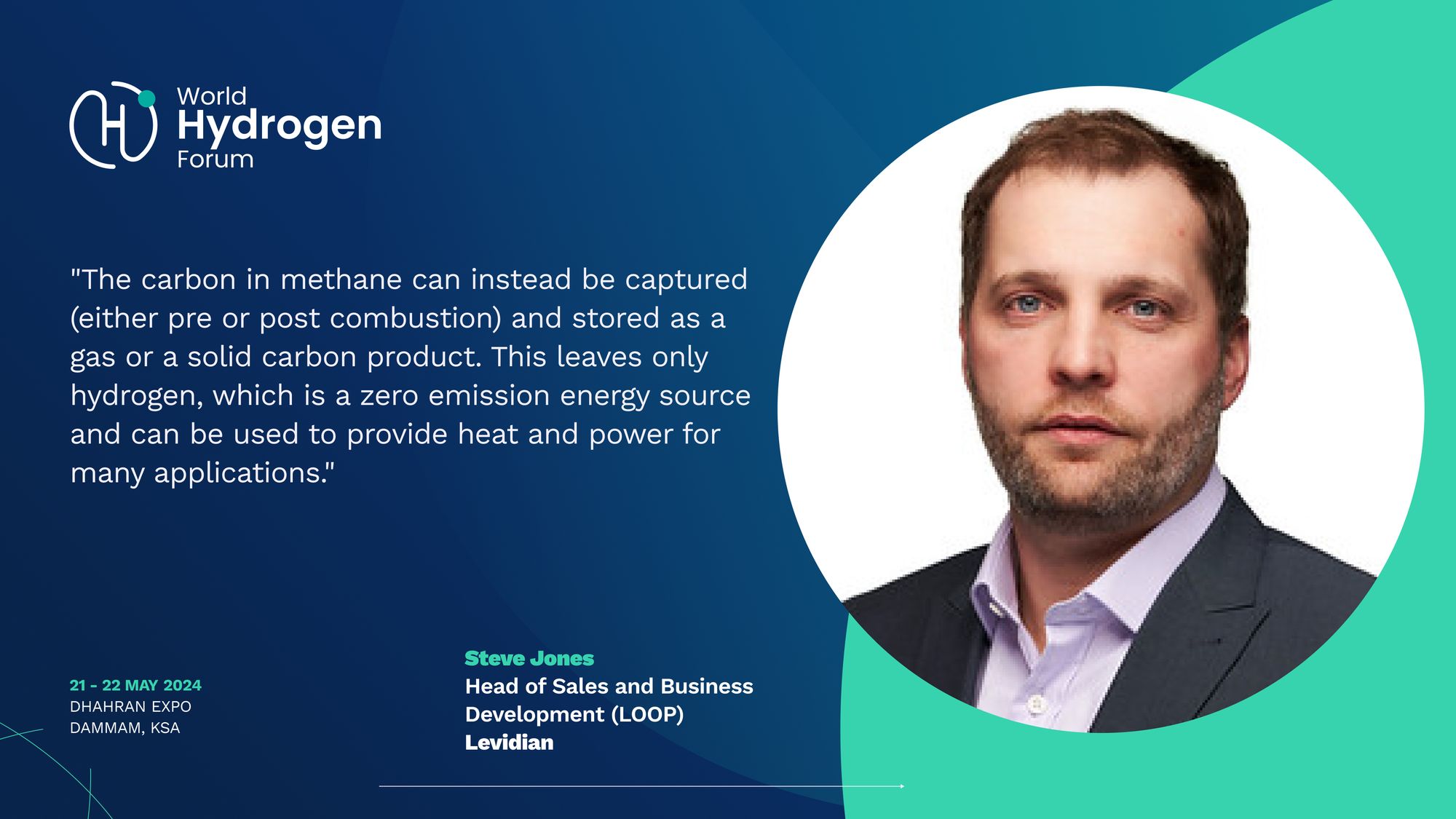In a compelling Q&A session, we engaged with Steve Jones, a veteran with two decades of experience in hydrogen and decarbonization. With a robust background spanning R&D, manufacturing, and market expertise in both the EU and US, Steve stands as a formidable authority in the field.
Armed with a BSc, MPhil in Materials Science, and an MBA, Steve navigates the intricate landscape of hydrogen technologies with finesse. Our Q&A Session delves into pivotal advancements shaping the hydrogen industry's role in sustainable energy transitions. Steve elaborates on methane-derived hydrogen production, advancements in hydrogen transportation, considerations for companies eyeing hydrogen integration, and the catalytic impact of global forums like the World Hydrogen Forum in propelling industry growth through collaboration and knowledge-sharing.
#WHF: What significant advancements are currently shaping the global hydrogen industry, and how might these developments impact its role in the transition to sustainable energy?
#Steve Jones: Hydrogen as an energy carrier is now firmly on the critical path for many regions around the globe. Every credible report written about net zero strategy identifies the critical role hydrogen has to play alongside other technologies such as electrification and SAF.
These results are now driving real investment into the hydrogen industry and we are seeing many large scale projects come to reality. This is very encouraging to see and will drive costs down and adoption up around the world.
#WHF: Can you explain the concept of carbon capture and utilisation in the context of methane-derived hydrogen production?
#Steve Jones: Methane (CH4) is a very good way of moving energy around. We have trillions of dollars of sunken costs in methane transport, storage and use around the world. Methane can be either a fossil fuel or a renewable fuel depending on its origin, but it always contains carbon and hydrogen.
If released in its standard form, methane is a much more potent greenhouse gas than CO2 so methane release should be avoided at all costs. If combusted methane produces CO2 which is also a greenhouse gas and should be avoided.
The carbon in methane can instead be captured (either pre or post combustion) and stored as a gas or a solid carbon product. This leaves only hydrogen, which is a zero emission energy source and can be used to provide heat and power for many applications.
#WHF: What advancements have been made in the transportation of hydrogen, especially for long distances?
#Steve Jones: Hydrogen is a very energy dense fuel in terms of mass but has terrible energy density when you consider volume. So storing a useful amount of hydrogen within a given volume is challenging, so efforts have been focused on increasing the volumetric energy density of hydrogen.
Projects using liquid energy carriers such as methanol, ammonia, Liquid Organic Hydrogen Carriers (LOHC) are being rolled out due to their increased volumetric density. Also cryogenic hydrogen transport is routinely used as a way to increase volumetric density of hydrogen.
#WHF: What are the key considerations for companies when deciding their target industries or regions for introducing hydrogen-relate products or services?
#Steve Jones: Considerations for hydrogen use depend on a number of factors including:
- Available subsidies/funding/incentives for hydrogen and low carbon technologies.
- The business case for hydrogen Vs alternative technologies such as electrification or biomethane
- Availability of feedstocks for hydrogen production (methane, electricity, water etc)
- Cost of feedstocks in order to be able to make low cost hydrogen
#WHF: How do events like the World Hydrogen Forum contribute to fostering collaboration, innovation, and knowledge-sharing among key stakeholders in advancing the hydrogen industry towards a sustainable future?
#Steve Jones: Events like WHF are critical to enable the hydrogen industry to share information and developments amongst a variety of stakeholders. They can provide knowledge and information to people just starting out on their hydrogen knowledge journey but also provide a venue for deal closure and real world use case discussions.
Events that gather key stakeholders often shortcut timelines to deployment by providing a forum to have focused discussions, therefore streamlining the process of project initiation and development.

